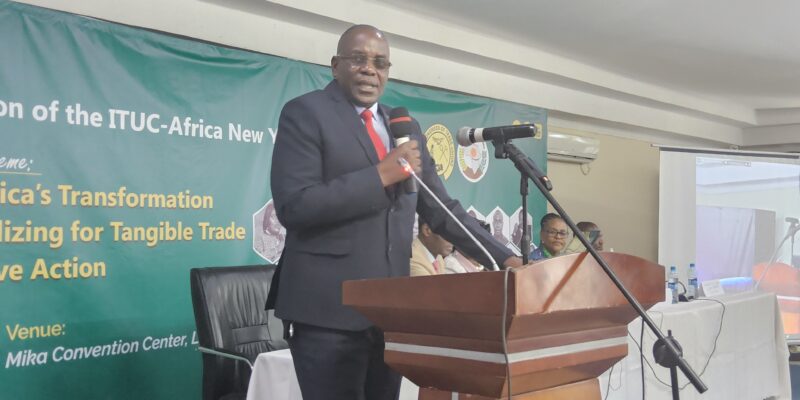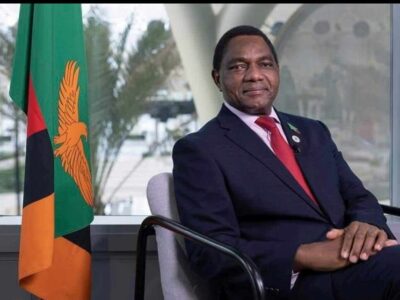The Zambia Congress of Trade Union (ZCTU) says the country’s debt problem is impacting negatively on the bargaining process by most labour movements.
ZCTU president, Blake Mulala, said this was compounded by some foriegn investors flouting the labour laws and not allowing employees to be represented by trade unions.
Mulala said this at the opening of the 14th Edition of the New Year School of the International Conference of Trade Union Confederation-Africa in Lusaka on Tuesday.
He stated that the debt mountain needed concerted efforts from all stakeholders like trade unions, the private sector and government in order to rescue what he described as a sinking boat.
“Our workers in the private sector, the challenges which workers face is not only in Zambia but Africa at large. The multi-national companies or firms are flouting our labour laws,” Mulala said.
The ZCTU president assured that the Congress would continue to ensure that workers work in an environment prescribed by the country’s laws and Africa at large.
He argued that workers had been affected in Zambia and Africa at large with the huge debt, as their unions were unable to bargain in the face of harsh economic conditions.
“It’s time for trade unions to take their place in the debt issue. We are not politicians, we are non-partisan and we will continue to put government in check in terms of policy formulation and implementation,” Mulala said.
He noted that African countries like Zambia had put into office careless leaders who had in turn put their countries into a sinking boat of debt.

Labour and Social Security Services Minister, Brenda Tambatamba, said government was working to strengthen labour laws and regulations to protect the rights of workers and the right to organise and bargain collectively.
“This aligns with the goal of empowering trade unions to mobilise and advocate for their members effectively,” Tambatamba stated.
The minister was, however, quick to state that the rights came with responsibilities and that Africa was still lagging behind in the provision of social security.
Read More: Hichilema raises hope of final resolution of debt crisis, confirms signing deal with China, India
She said according to the International Social Security Association, only 17.4 percent of the population were covered by at least one form of social security coverage.
“Social security coverage also remains low in Zambia, especially among the informal sector workers,” Tambatamba stated.
International Conference of Trade Union Confederation-Africa president, Martha Molema, reaffirmed the unions commitment to education as the cornerstone of the labour movement and the key to transformative change.
Molema added that education for the working class should be inclusive, empowering and geared towards fostering tangible collective action.
“It is not merely a tool for personal advancement but a catalyst for shaping the future of our continent,” she said.
WARNING! All rights reserved. This material, and other digital content on this website, may not be reproduced, published, broadcast, rewritten or redistributed in whole or in part without prior express permission from ZAMBIA MONITOR.













Comments